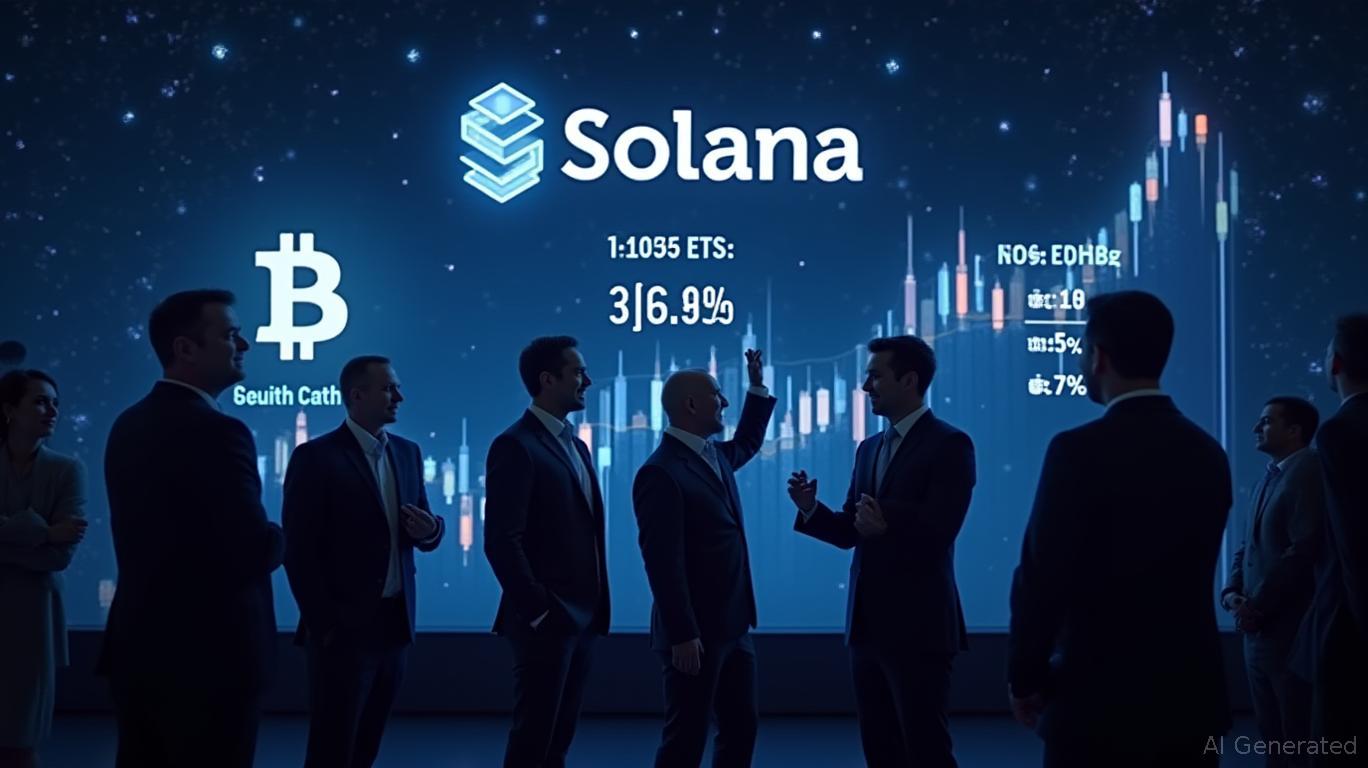Hong Kong’s Approach to Stablecoins Connects Cryptocurrency with Practical Applications
- Hong Kong's HKMA demands stablecoin issuers prove "strong use cases" for licensing, prioritizing real-world utility over speculation. - Stock Exchange rejects DAT conversions for listed firms, citing investor protection risks and regulatory gaps in crypto structures. - Ant Group, JD.com, and Fosun file trademarks in Hong Kong, leveraging its bank-grade stablecoin rules and licensing clarity. - Hong Kong's framework mandates full collateralization and redemption mechanisms to tie stablecoins to economic a
Hong Kong’s financial watchdog has indicated it will take a tough stance on stablecoin licensing, requiring issuers to prove a “clear and substantial use case” before approval is granted, according to Hong Kong Monetary Authority (HKMA) chief Eddie Yue. This represents a significant change in the city’s approach as it seeks to become a leading global center for digital assets, balancing innovation with risk management, as reported by a
The HKMA’s position is consistent with wider regulatory efforts to limit speculative activities in the cryptocurrency sector. At least five publicly traded companies have had their applications to become digital asset treasury (DAT) entities turned down by the Hong Kong Stock Exchange, which cited investor protection and regulatory uncertainty as reasons, according to a

Under Hong Kong’s regulatory regime, which began on August 1, 2025, stablecoin issuers are required to obtain licenses from the HKMA and comply with strict reserve standards, including full collateral backing and strong redemption processes, as outlined in a
This proactive regulatory approach has already attracted major industry players. Ant Group, the company behind Alipay, has recently applied for trademarks for “ANTCOIN” in Hong Kong, indicating preparations for possible stablecoin launches under the new rules, according to a
Hong Kong’s clear regulatory framework has given it an advantage over Singapore, its traditional competitor in Asia’s digital asset sector. Over the last two years, many Web3 companies have moved their headquarters to Hong Kong, attracted by its robust stablecoin regulations and licensing options for virtual asset platforms, as noted by Yahoo Finance. The city’s strong capital markets and access to tech talent from mainland China further enhance its attractiveness.
Nonetheless, there are still hurdles. The lack of specific laws for DAT structures has left both regulators and market participants operating in a legal gray zone. Huang Tianyou, chairman of the China Securities Regulatory Commission (CSRC), cautioned that DAT premiums could “disappear overnight” if regulatory clarity is achieved, stressing the importance of investor education, according to CoinEdition. He also pointed out that most local investors are unfamiliar with DATs, which could increase market instability, as reported by Cryptopolitan.
As Hong Kong continues to refine its policies, the emphasis on innovation driven by real-world use cases remains central. Eddie Yue’s remarks highlight a broader plan to connect digital assets with traditional finance, ensuring they are used for practical purposes like cross-border payments and trade, rather than for speculation, as observed by Cryptopolitan. This strategy is in line with global developments, where stablecoins are increasingly viewed as tools for financial access and efficiency, not just for trading, according to Yahoo Finance.
The regulatory environment is still evolving. With the first licensed stablecoins expected as soon as 2026, Hong Kong’s ability to maintain a balance between innovation and oversight will be crucial in determining its position in the worldwide digital asset landscape, Yahoo Finance concluded.
Disclaimer: The content of this article solely reflects the author's opinion and does not represent the platform in any capacity. This article is not intended to serve as a reference for making investment decisions.
You may also like
Bitcoin Updates: Swiss Crypto Lending Offers 14% Returns Alongside Bank-Backed Insurance
- Swiss crypto lender Fulcrum offers 14% APR on stablecoins with Lloyd's insurance and FINMA regulation. - Platform uses 50% LTV over-collateralization and institutional-grade security to mitigate market risks. - Targets inflation-hedging investors by bridging traditional finance gaps with insured crypto yields. - Competes with alternatives like Bitget's zero-interest loans but emphasizes regulatory compliance and capital preservation.

Bitcoin News Update: Analyst Highlights How MSTR's Convertible Bonds Prevent Forced Bitcoin Sales
- MSTR's convertible debt structure allows debt repayment via cash, stock, or both, avoiding Bitcoin sales during market downturns. - The company raised €350M through a 10% dividend-bearing euro-denominated preferred stock offering to fund Bitcoin purchases. - Q3 results showed $3.9B operating income from Bitcoin gains, driving a 7.6% stock surge to $273.68 post-earnings. - Risks persist if Bitcoin fails to rally in 2028, potentially forcing partial liquidation amid $1.01B 2027 debt obligations. - MSTR hol

Solana News Today: Solana ETFs Surpass Bitcoin as Staking Returns Attract Institutional Investments
- U.S. spot Solana ETFs (BSOL/GSOL) attracted $199M in 4 days, outperforming Bitcoin/Ethereum ETF outflows. - 7% staking yields drive institutional inflows as investors rotate capital from major crypto assets. - Despite ETF success, SOL price fell below key support levels, raising concerns about $120 price floor. - Strategic staking and treasury purchases boosted Solana's institutional appeal, with $397M in staked assets. - Market remains cautious as ETF competition intensifies, with Bitwise's BSOL outpaci

Bitcoin News Today: Bitcoin’s Fourth Quarter Surge: Impact of Trade Disputes, Stronger Dollar, and Evolving Global Economic Strategies
- Bitcoin fell nearly 15% in October 2024, its worst quarterly start since 2022, driven by U.S.-China trade tensions, dollar strength, and macroeconomic caution. - A 100% U.S. tariff on Chinese imports and Fed rate-cut delays exacerbated selloffs, triggering $1.3B in liquidations during a flash crash below $103,000. - Key support levels at $107,000 and $101,150 face retests as traders warn of further declines, with market cap dropping below $3.6T amid fragile liquidity. - Wintermute denied Binance lawsuit
